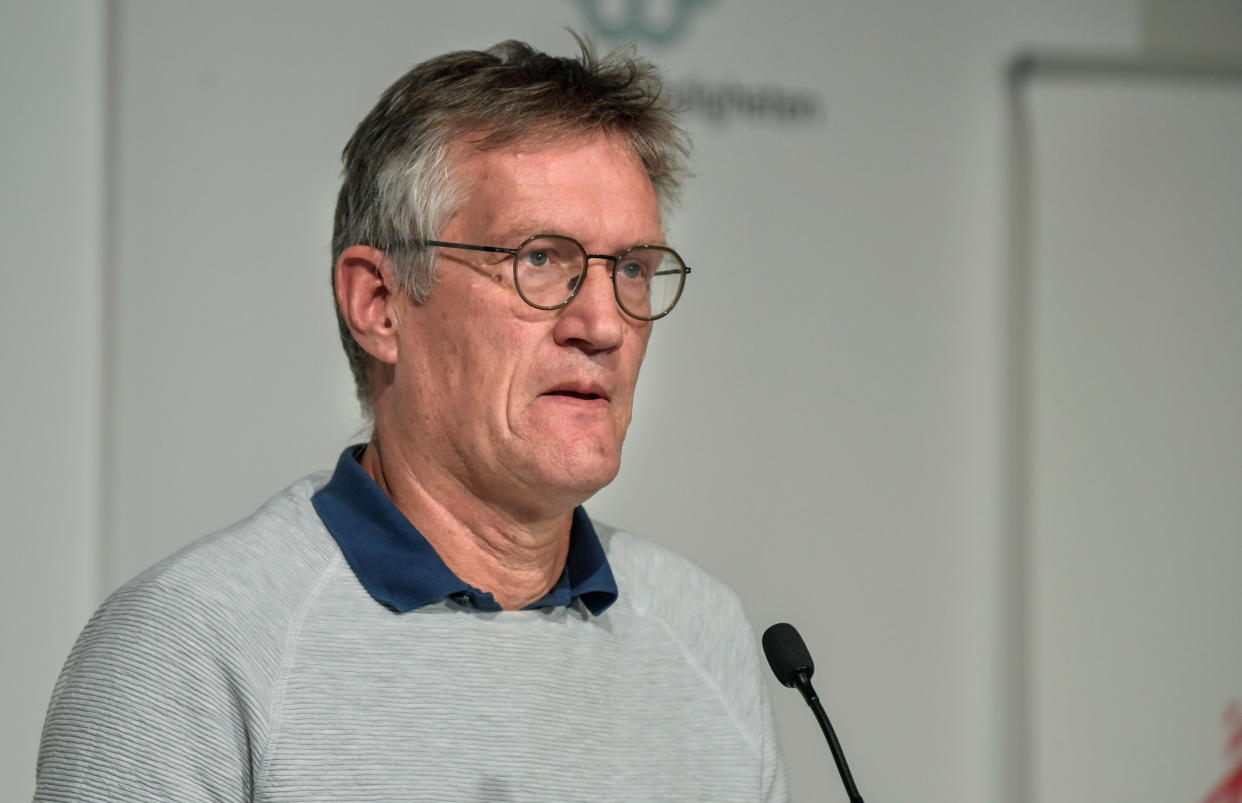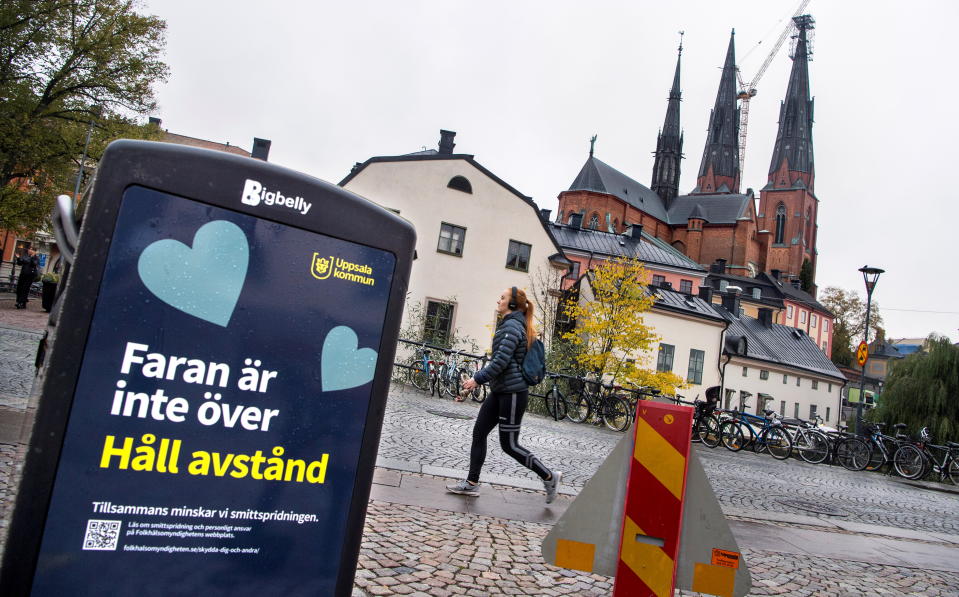Sweden registers record rise in COVID cases as second wave sweeps the country

Sweden registered a record 5,990 new coronavirus cases on Friday, the highest since the start of the pandemic, the country’s Health Agency has revealed.
The increase compared with a high of 4,697 daily cases recorded earlier this month.
The Scandinavian country, whose unorthodox virus-fighting strategy has garnered global attention, registered 42 new deaths, taking the total to 6,164 deaths.
Unlike most other European countries, Sweden did not implement strict measures in response to the coronavirus pandemic, instead choosing to allow many businesses, areas of the hospitality sector and schools to stay open.
But recommendations to avoid crowded places and public transport now apply to more than half of Swedes as cases in the country continue to increase.
Relative to the size of its population - around 10 million - Sweden has suffered many times more COVID-19 deaths than its Nordic neighbours, though not quite as many as Europe's worst-hit nations, such as Spain and the UK.
You need to compare Sweden to its Nordic neighbours. Denmark had a bad spike which is coming down and Sweden is higher (and increasing faster) than Norway and Finland (both of which have had fewer restrictions than Sweden since summer). Data from ECDC. Let's be Norway. https://t.co/yszPwGV2bU pic.twitter.com/idJN9WrPai
— Christina Pagel (@chrischirp) October 9, 2020
In May, the country’s chief epidemiologist Anders Tegnell, whose rejection of lockdowns and widespread use of face masks made Sweden a European outlier, told the Financial Times: “In the autumn there will be a second wave. Sweden will have a high level of immunity and the number of cases will probably be quite low.”
But on Thursday he admitted that immunity to COVID-19 in the country was likely to be lower than previously estimated.
He also admitted the country was in the grip of a second wave, something he had denied would happen back in August.
"I don't think the definition is that important,” he said. “But we see community spread in many regions simultaneously right now.

"The number of people we don't find with diagnostics is with high probability smaller than we thought.”
On Tuesday the country introduced tighter movement restrictions, encouraging people to work from home wherever possible, and on Thursday it announced a 10pm curfew on alcohol sales in hospitality venues.
Tables in restaurants and bars are restricted to a maximum of eight people.
The alcohol ban in bars, restaurants and pubs will take effect on November 20 and last until at least February, the government said, and any businesses that serve alcohol will have to close by 10.30pm under the new rules.
Health minister Lena Hallengren said the measures were being imposed because people were prone to ignoring social distancing guidelines while under the influence of alcohol.

While Health Agency officials have stressed so-called herd immunity, where enough people in a population have developed immunity to an infection to effectively stop the disease from spreading, has never been a goal, it has been mentioned as a possible boon of Sweden's strategy.
Anti-lockdown campaigners in Britain have hailed the Swedish approach as one to replicate, and there have been suggestions the government was looking towards a more relxed approach to restrictions with a view to gaining herd immunity in the UK.
Boris Johnson introduced curfews for hospitality venues, and a raft of other measures including the ‘rule of six’, in an attempt to avoid a full nationwide lockdown. However, on 31 October he announced England would once again see lockdown restrictions imposed, for four weeks from 5 November.
In response to the recent surge in infections in Sweden, neighbouring Norway has recalled Home Guard forces to patrol the border between the two countries, which is the longest in Europe.
Norway tightened coronavirus rules last week and extended its Schengen border controls for another six months.
'Civilian authorities do not have sufficient resources to enforce the new measures and have asked the Armed Forces for assistance,' the military's rapid mobilisation force said on Tuesday.
Coronavirus: what happened today
Click here to sign up to the latest news, advice and information with our daily Catch-up newsletter

 Yahoo News
Yahoo News 

